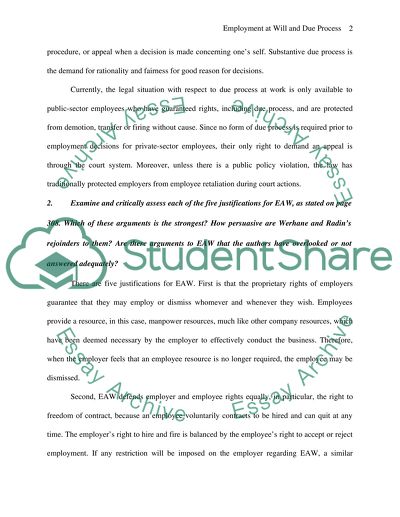Cite this document
(Employment at Will and Due Process Assignment Example | Topics and Well Written Essays - 1750 words, n.d.)
Employment at Will and Due Process Assignment Example | Topics and Well Written Essays - 1750 words. https://studentshare.org/law/1503480-employment-at-will-and-due-process
Employment at Will and Due Process Assignment Example | Topics and Well Written Essays - 1750 words. https://studentshare.org/law/1503480-employment-at-will-and-due-process
(Employment at Will and Due Process Assignment Example | Topics and Well Written Essays - 1750 Words)
Employment at Will and Due Process Assignment Example | Topics and Well Written Essays - 1750 Words. https://studentshare.org/law/1503480-employment-at-will-and-due-process.
Employment at Will and Due Process Assignment Example | Topics and Well Written Essays - 1750 Words. https://studentshare.org/law/1503480-employment-at-will-and-due-process.
“Employment at Will and Due Process Assignment Example | Topics and Well Written Essays - 1750 Words”. https://studentshare.org/law/1503480-employment-at-will-and-due-process.


